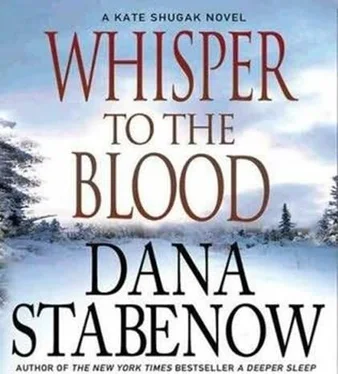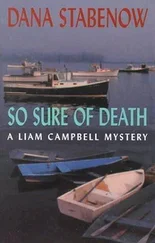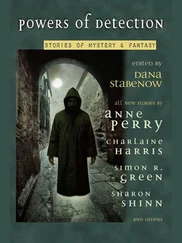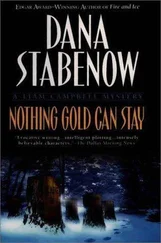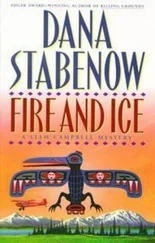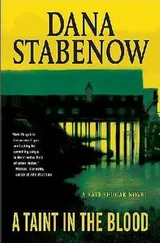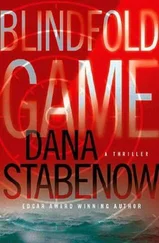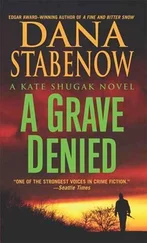"I just found out about them yesterday," she started to say.
"And where's the trooper?" He directed a pointed look over her shoulder. "Sorta conspicuous by his absence, now, ain't he?"
Ike Jefferson was another fisherman, who supplemented his summer earnings by working construction in Anchorage during the winter. A finish carpenter, he was an artist and a craftsman and was better off financially than any of the other victims, but his wife had died giving birth to Laverne and he was raising her alone. "I moved us to Anchorage in the winter because of the work," he told Kate tightly, "but whenever we can, we spend the weekend on the river. It don't happen anywhere near as often as either one of us would like. All I was doing was hauling in some fuel so the place don't freeze up while we're gone. Who pulls this kind of shit, Kate? Since when do Park rats prey on their own? This used to be a good place to live, with good neighbors that'd look out for the place while we're gone, but I might as well live in Anchorage full time and let Laverne hang out at the Dimond Center for all the peace we're getting here."
The Dimond Center mall in Anchorage was a notorious hangout for gangbangers, with APD responding to shoot-outs there half a dozen times a year. No Park rat regarded Anchorage itself as anything more than a place to get your eyes checked, your teeth fixed, to buy food, clothing, and parts, eat fried chicken at the Lucky Wishbone and pizza at the Moose's Tooth, and maybe see a movie if enough things were blown up in it. That Ike had been reduced to winters there only added insult to this newest injury in his eyes.
Laverne, a chunky little girl with a self-possession that belied her years, calmly corroborated her father's description of the attack and the perpetrators, and added the interesting detail that all the snow machines were new.
"Did you recognize what kind?" Kate said.
The girl nodded. "They were all Ski-Doos, and they were all black."
Ike's lips were pressed into a thin line. "Somebody's making money doing this," he said. "Good money. Where you headed now?"
"Red Run," she said.
He snorted. "Why bother? We both know where you shoulda gone first."
She said the same thing to him that she had to Ken Kaltak. "Did you recognize your attackers, Ike?"
He let loose with a string of profanity and stamped off toward the outhouse. " 'Bye, Kate," Laverne said, and went back in the cabin.
Dismissed, Kate pressed the starter, negotiated the steep trail over bank to river, idled for a few moments to give Mutt time to catch up and hop on, and headed south.
She got to Red Run that evening and spent the night in her sleeping bag on the floor of the school gym, courtesy of the new teacher who lived alone in a little cabin out back and who was so hungry for company three months into the school year that she insisted Kate join her for dinner and Notting Hill on DVD afterward. They both agreed they liked Hugh Grant's friends more than they liked Hugh Grant, and Kate went to sleep that night thinking Red Run School would be lucky if Alice Crawford lasted out the year.
Kate was at the Rileys' home at first light, a small, snug house that Art had built himself from the ground up over the past thirty years. It had begun life as a one-room log cabin, added on to as the children came, and then when Art's father died of lung cancer he built a mother-in-law apartment on the side facing the river. It had its own kitchen where she could make agutaq and fry bread for the granddaughter, the child of Art and Christine's eldest son, an Alaska National Guardsman stationed in Anchorage who was presently serving in Iraq. The mother had vanished shortly after the child's birth and the child had never lived with anyone else.
They welcomed Kate and invited her to share their breakfast. Art was a trapper who ran lines up a couple of creeks in the Quilak foothills, one of them in the Suulutaq Valley. "Best wolf run I've ever had, and last year the best prices I've ever got," he said. "Seems all the Hollywood types are trimming their coats with wolf nowadays, and where they go everybody follows. 'Course the mine'll put paid to all that."
"Doesn't have to," Kate said. "Not if we watch them."
He shook his head. "Don't kid yourself, Kate. It'll change everything."
"Only if we let it," she said, but she was put forcibly in mind of Mandy's certainty on the same subject. "About that attack, Art, she said. "I was wondering if you'd remembered anything else about them. For starters, do you have any idea who it was?"
"No," he said, "no idea."
His tone was oddly tranquil. The five of them were at the kitchen table surrounded by the remnants of bacon and eggs and fried potatoes and toast, the granddaughter absorbed in constructing a house from her potatoes. "You told Jim Chopin you thought the Johansen brothers were the people he ought to talk to."
"Did I?" He shook his head, and produced a sheepish grin. "Probably a hangover from them corking me last summer. The Johansen brothers are a waste of space, true, but I didn't have any reason to suspect them more than anybody else. Still don't."
She stared at him, puzzled.
The Riley kitchen was a warm, crowded, and friendly place, with a woodstove for heat and a propane stove for cooking. The table was homemade beetle kill spruce and big enough to seat eight comfortably, covered with a tacked-down sheet of blue-checked oilcloth. The cupboards were homemade beetle kill, too, like the table a little clunky but sanded and polished to a smooth finish that had been darkened by years of cooking oil and wood smoke. Faded linoleum covered the floor and the walls were a pale yellow, chipped and peeling, on which faded patches showed signs of photographs added and moved around over the years. Dishes were stacked in a wide porcelain farmer's sink that was rather the worse for wear. Underneath the table were two dogs of indeterminate breeding, still and wary but unafraid of Mutt, who was sitting next to Kate, her ears up as if she were listening to and understanding the conversation. She looked up at Kate, yellow eyes meeting hazel, and one ear went back inquisitively. Kate put a hand on her ruff, and looked back at the table.
Grandma Riley looked like one of the aunties, round, brown and wrinkled, a woman of spirit and substance. Like the aunties, she had time served in the Park, and was a repository of knowledge about all the rats who lived therein going back generations, extending to fourth cousins five times removed who now lived in Bowling Green, Kentucky. When a Park rat wanted to draw a family tree, Grandma Riley was everyone's first stop. She'd been failing lately, which was why the extended stay in the elder health care facility in Ahtna, and Kate had the feeling that this might be her last trip south.
Art was the grandson of a white stampeder, a handsome, reckless fellow with a slight limp, known in Dawson City as Riley the Gimp, from New York, who had met and married a local beauty from Tok. They'd moved to the Park to work at the Kanuyaq copper mine, and had stayed on after the mine had closed in 1936, to homestead on the river and raise a family. Grandma Riley had married their son, Arthur Sr., and their children, beginning with Art Jr., had inherited their share of their grandparents' looks.
Christine Riley had been an army brat, born in Anchorage. She had met Art at the University of Alaska and he had brought her home to the river the year they graduated. She was a woman of quiet beauty, still slim and with a full head of pure white hair that was always neatly dressed in a braid wound around her head like a crown. Kate didn't think it had been cut in Christine's lifetime. She worked in the tanning shed next to the house, curing the wolf and mink and beaver and lynx skins Jim brought home, preparing them for sale at fur auctions in Anchorage.
Читать дальше
